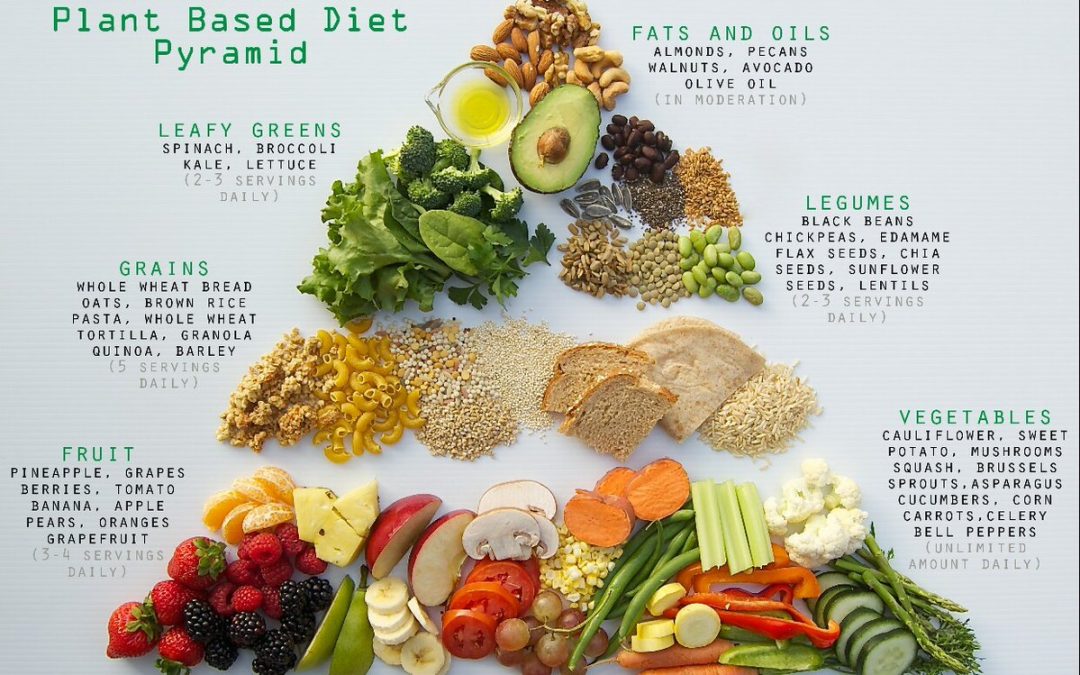Food today can be complicated, but it doesn’t have to be. In fact, the more you can simplify and get back to nature, the better.You may hear the term “whole foods” used a lot when it comes to eating a healthy diet, but what exactly does it mean?
Please note that it’s not referring to the large supermarket chain that goes by the same name, although you can find whole foods there, many of the items sold in those stores are far from healthy.
“Whole foods” refers to realfood that is as close to its natural form as possible and still looks similar to how it did when it was growing in nature. Basically, it is food, that for the most part, has not been altered, refined or processed and doesn’t contain additives like salts, sugars or other chemicals and preservatives.
Whole foods mainly include plant-based foods such as fresh vegetables, fruits, unsalted nuts, seeds, whole grains (such as brown rice, quinoa, barley, etc.) and legumes (such as beans, lentils, chick peas, etc.), as well as animal foods such as free range eggs, grass fed meat and butter, wild caught fish, and antibiotic and hormone free dairy and poultry.
For example, eating some fresh strawberries as opposed to a sugar laden, heavily processed fruit rollup or juice box that is loaded with chemical additives and artificial colorings would be a much healthier whole food choice, providing you with nourishment and nutrition your body needs.
Your body runs most efficiently and can more easily digest and absorb food that is in its natural form. Therefore, eating more whole foods is very beneficial for improving health, maintaining an ideal weight and preventing disease. All the nutrients, vitamins, minerals, fiber, etc. has already been perfectly arranged by Mother Nature.
This doesn’t mean you can’t ever eat packaged or processed food as that would be quite difficult. However, making the conscious effort to minimize those food items and add more healthier whole food options will bring you great benefits. Finding a good balance is key.
Eating a whole foods diet will significantly change your lifestyle and overall wellbeing by keeping your organs, cells, and lymphatic system clean and your immune system strong and healthy. It will help to reduce inflammation as well as help you manage your mood, stress levels, and promote a longer and better quality of life.
Eating a whole foods diet doesn’t have to be a difficult transition. Remember to start slow and begin following these easy steps.
- Try incorporating one new whole food each day or week as is best for you.
- Avoid eating things from a box, can, bottle, or bag as much as possible.
- Consume a wide variety of colors from fruits and vegetables
- Stay away from white bread, white flour, white sugar and white pasta.
- Read labels. If there’s too many ingredients or you can’t pronounce one, leave it.
- Avoid refined sugars, artificial sweeteners, coloring or corn syrup.
- Start shopping at your local farmer’s market.
- Pay attention to where your food is coming from.
- Practice mindfulness. Notice how you feel after eating.
Focus on balance so that you can maintain long term healthy eating patterns and achieve the best overall results. A balanced diet that includes whole foods is the best way to provide your body with the nourishment and nutrients it needs and to help protect against disease. Having the occasional treat in the form of a processed food is okay if done in moderation and as part of an otherwise healthy, balanced diet.

